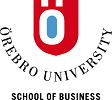No 2020:6: Choosing Opponents in Skiing Sprint Elimination Tournaments
Niklas Karlsson () and Anders Lunander ()
Additional contact information
Niklas Karlsson: Örebro University School of Business, Postal: Örebro University, School of Business, SE - 701 82 ÖREBRO, Sweden
Anders Lunander: Örebro University School of Business, Postal: Örebro University, School of Business, SE - 701 82 ÖREBRO, Sweden
Abstract: In this study we analyse data from world cup cross-country skiing sprint elimination tournaments for men and women in 2015-2020. Instead of being assigned a quarterfinal according to a seeding scheme, prequalified athletes choose themselves in sequential order in which of five quarterfinals to compete. Due to a time constraint on the day the competition is held, the recovery time between the knockout heats varies. This implies a clear advantage for the athlete to race in an early rather than in a late quarterfinal to maximize her probability of reaching the podium. The purpose of the paper is to analyse the athletes’ choices facing the trade-off between recovery time and expected degree of competition when choosing in which quarterfinal to compete. We find empirical support for the prediction that higher ranked athletes from the qualification round prefer to compete in early quarterfinals, despite facing expected harder competition. Nevertheless, our results also suggest that athletes underestimate the value of choosing an early quarterfinal. In addition, we propose a seeding scheme capturing the fundamental disparity across quarterfinals using the estimates from a logistic regression model.
Keywords: choosing opponent; sequential choise; seeding; skiing sprint
31 pages, First version: August 11, 2020. Revised: September 1, 2020.
Full text files
wp-6-2020.pdfFull text
Questions (including download problems) about the papers in this series should be directed to ()
Report other problems with accessing this service to Sune Karlsson ().
RePEc:hhs:oruesi:2020_006This page generated on 2026-01-16 04:38:50.

